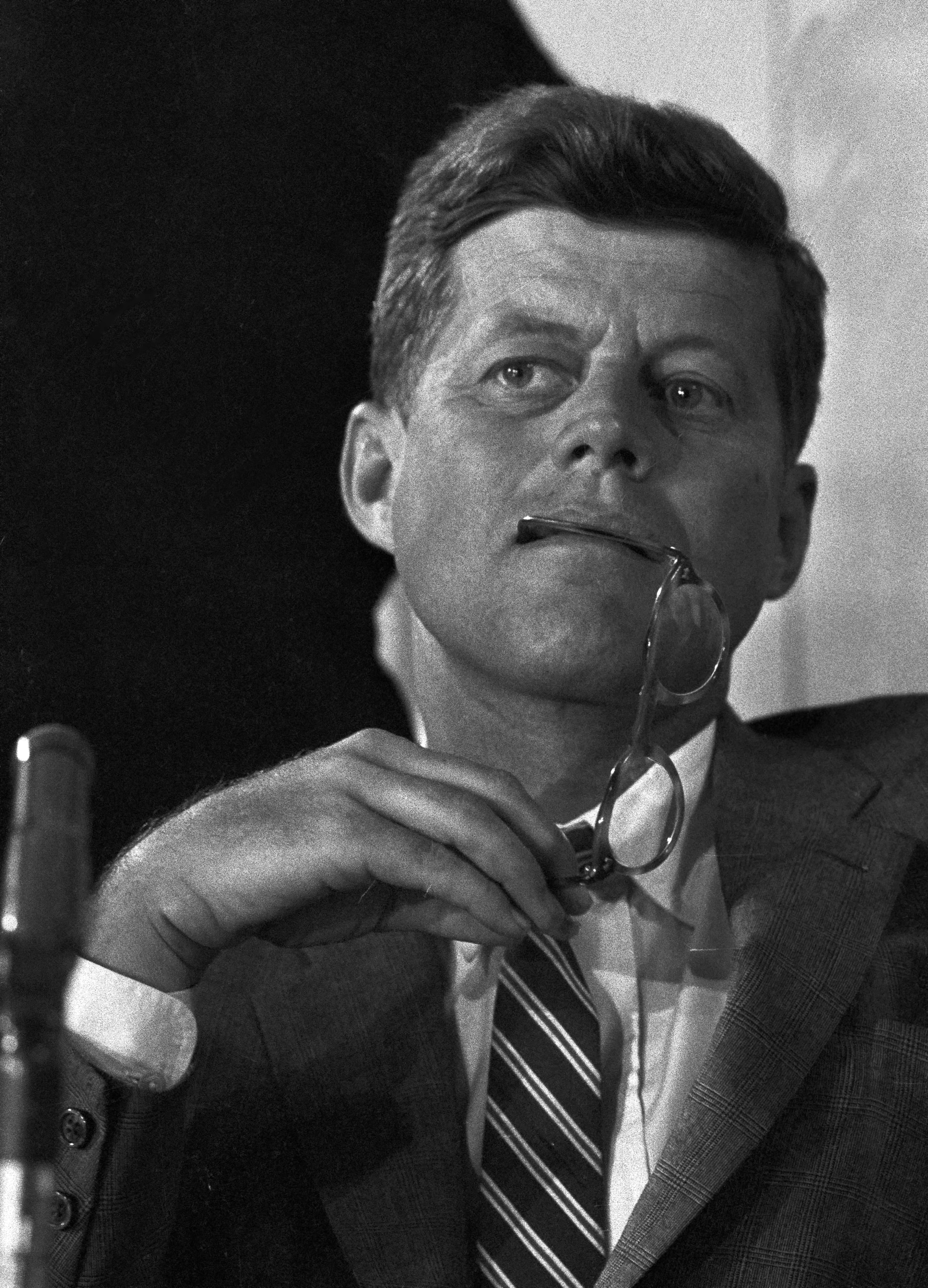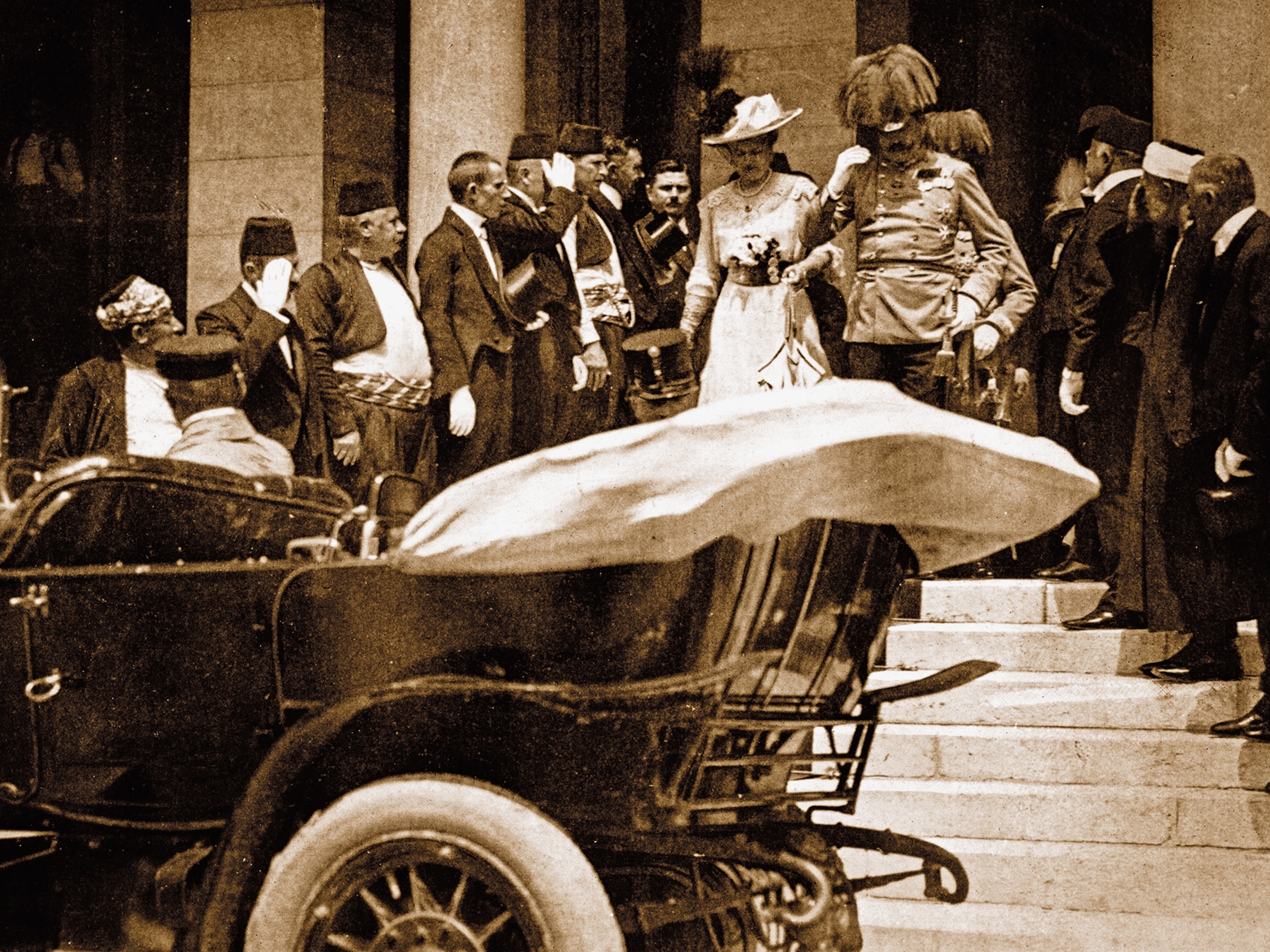
Unpublished JFK Tapes Released 50 Years After Assassination
Recordings of friends and leaders reveal intimate details of iconic politician.
For the first time in the 50 years since their making, recordings of John F. Kennedy's friends talking about him after his death have been published in a public radio show called "We Knew JFK: Unheard Stories From the Kennedy Archives."
"The tapes were hiding in plain sight," said Stephen Atlas, director of the project, which was distributed by Public Radio Exchange (PRX) on November 18. John F. Kennedy was shot and killed 50 years ago on November 22.
In the tapes, celebrities, politicians, bus drivers, staffers, journalists, veterans, and musicians talk about their friend John in the months after his death in 1963. They talk surprisingly candidly about his warmth, sense of humor, political drive, intellect, womanizing, profanity (always in private), charmed life, and the memorable moments they shared with him.
In the recordings, Thomas "Tip" O'Neill (who later became a long-time Speaker of the U.S. House of Representatives) talked about his first impression of a young Kennedy, decades before. "Jack Kennedy looked to me like a boy just out of school," O'Neill said.
But when Kennedy began campaigning for U.S. Congress in the late 1940s, his charisma was unstoppable. O'Neill, who represented a different district in Massachusetts, remembered saying, "Thanks be to God I'm not running against Jack Kennedy."
Glenda Manzi, managing producer of the radio show, said it surprised her how much listening to the tapes brought JFK to life. "We didn't uncover any national secrets. The historians have been quoting from the transcripts for years," she said. "But to read the transcripts and then listen to people talk about JFK, you really come away with a sense of who he is—he was a really complex guy."
Meeting Jackie and Sparring With Opponents
One of the stars of the tapes, Charles L. Bartlett, a Pulitzer Prize-winning journalist who would later become a close friend of Kennedy, tells of the mishaps of matchmaking in trying to introduce Jacqueline "Jackie" Bouvier to Kennedy. Bartlett first tried to steer them together at a wedding but failed, and had to make another attempt at a later date. He also tells of JFK's earliest days as a bit of a slacker in the U.S. Congress.
Canadian journalist Max Freedman also mentioned Kennedy's days as a representative. "He didn't work very hard at the job," said Freedman.
But when Kennedy was elected U.S. senator in 1952, Bartlett noticed a significant change. "He became a much more serious fellow," said Bartlett.
Princess Grace is heard remembering JFK asking her about a designer gown she was wearing at a White House event. Her voice is lovely and elegant and summons the image of Camelot that was JFK's legacy.
Political rival Barry Goldwater quotes the president during the Bay of Pigs crisis as saying to him, "Do you want this [bleeping] job?"
Finding the Tapes
When Atlas stumbled across the massive collection of audiotapes—more than 1,200—he assumed it had been previously mined for other shows. "I couldn't believe no one had ever published these before. I kept thinking I was going to discover that they had," he said.
But in fact, the tapes, which began to be made just months after the president's death, had never been heard by the general public. They were created as a public record by the Kennedy family and a team of interviewers, funded by the Carnegie Corporation.
As soon as the interviews were completed, they were transcribed and the transcription was sent to the interviewee to review and edit. The tapes were never considered an actual record themselves, although interviewees signed contracts indicating any restrictions.
"They were only intended to be background research for the transcripts," said Atlas. The tapes were dutifully retained, however, and all of them came to rest in the Kennedy Presidential Library and Museum in Boston.
When Atlas and his team began work on the project about six months ago, they had a daunting challenge to select and clear the recordings for use. The presidential library curators first had to review the audio's contract. If the contract allowed for public use, they then checked the recording against the transcript and determined whether there were any changes. If additional permission was needed, the interviewee or heir would have to be tracked down.
After skimming through hundreds of the transcripts and then listening to about 50 of the tapes, Atlas and Manzi narrowed the field to the final 25. The recent government shutdown interrupted the project toward the end, but the team had enough content by then.
The JFK Library mailed the recordings to the Cutting Corporation's Archival Sound Labs in Bethesda, Maryland, for digitizing. Aaron Coe, manager of the labs, handled the old tapes. They were "one-quarter-inch open reel magnetic tape recordings," Coe said, and were "mostly recorded half track (two discrete mono programs) at 3¾ inches per second, although there were some full track (single mono program) and 7½ inches per second tapes."
Remembering History
Permissions were another story. "Most of the people [in the tapes] are dead," said Manzi. Finding heirs, let alone their contact information, was challenging. "It was like being a private detective," she said. Bartlett, for example, one of the few still alive, was out of the country and could eventually be reached only through his daughter, who Manzi discovered through an article in a gardening magazine.
Robert MacNeil agreed to host the show. MacNeil, then with NBC News, was a member of the White House press corps during the Kennedy administration and was in the motorcade when Kennedy was shot. Looking for a pay phone, he ran into the Texas School Book Depository to file the story and may have passed Lee Harvey Oswald running out.
MacNeil "became in effect one of our storytellers, contributing observations and anecdotes of his own that enriched the hour," said Atlas.
The work has resulted in an astonishing record of candid reminiscences of one of the most famous American politicians of the 20th century.
Library staff rose to the challenge, and Tom Putnam, director of the John F. Kennedy Presidential Library, was enthusiastic about the project. "One of the goals of the Kennedy Library is to provide access to the public to our holdings, and we're pleased to know that the oral histories of those individuals who knew President Kennedy will reach a large audience through this program," he said.
The full broadcast can be heard at PRX or at the radio show's website.








